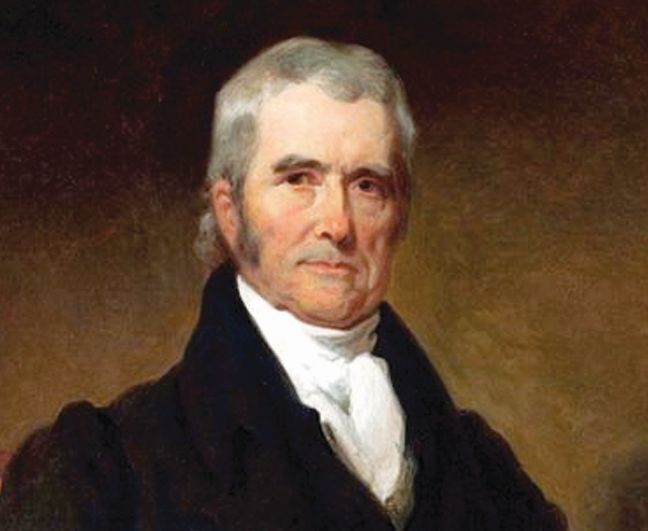ERA 4: Expansion and Reform (1801-1861)
The Great Chief Justice, by Fred Rodell
Guiding Questions
Should the Supreme Court be able to overturn laws?
Did Marshall make his decisions based on politics, economics or the Constitution?
Does the Constitution give or deny supremacy to the Supreme Court? Where? How?

Chief Justice John Marshall
Teacher-to-Teacher
Chief Justice John Marshall took the helm of the Supreme Court of the United States at a pivotal time in the history of the country as well as the history of the Court itself. Many, including Rodell, assert that Marshall was able to create a national government that was based on his own ideas of how that government should be structured and how it should function. Marshall most certainly provided opinions that strengthened the national government, and specifically the national judiciary in its relationship with the other two branches of government. With Rodell’s article, students can read three key decisions written by Marshall and analyze the manner in which those decisions helped to shape the scope of national government power and the role the national judiciary would play in the decades to follow after Marshall leaves the bench. Finally, students can be challenged to discuss Rodell’s assertion that if Marshall were alive today, he would be a states’ rights advocate. Using the Supremacy Clause as well as other written opinions, students can debate the merits of Marshall’s view that the Court can rule laws unconstitutional.
- The Great Chief Justice (December 1955 | Volume: 7, Issue: 1) articles_ah
- U.S. Constitution historical_documents
- Brutus No. 15- Excerpt historical_documents
- Federalist No. 78 historical_documents
- Judiciary Act of 1789- Excerpts historical_documents
- Marbury v. Madison – Opinion of the Court historical_documents

